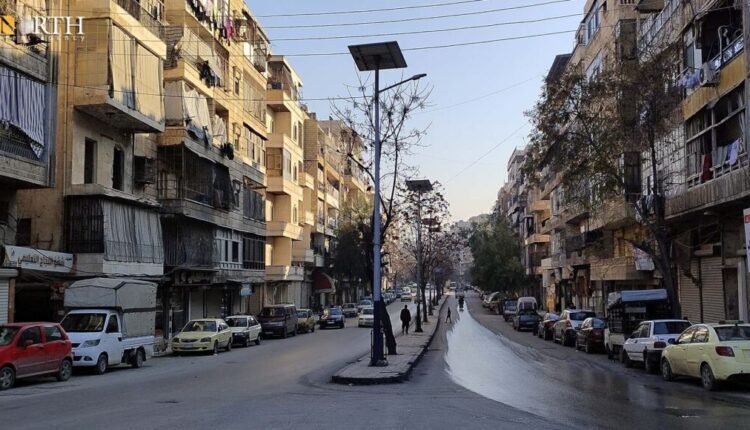
DAMASCUS, Syria (North Press) – Severe fuel shortage has been disrupting services and paralyzing all aspects of life in all the Syrian areas held by the Syrian government. Although repeated promises were made by the government’s concerned officials to bring the crisis to an end, the situation remains the same.
Previously, drivers used to queue for long hours in order to fill their cars with gasoline of diesel. This, however, has become something of the past.
In addition, Syrian government issued on December 6 a decision to close state institutions on December 11 and 18 as many employees have been unable to make it to work because public transportation has been badly affected by the crisis.
The decision signals how deep the crisis goes in the cities located in the government-held territory. Such decisions in Syria used to be passed when the country used to be covered by snow in winter. Employees attached to the Syrian government institutions used to go to work even though the country was hardly hit in the early years of the civil war.
On Monday, Ministry of Internal Trade and Consumer Protection almost doubled fuel prices to reach 5,400 Syrian pounds for a liter of diesel while gasoline reached 4,900 pounds.
Since the start of the crisis in the country, the government has managed, though insufficiently, to secure shipments of oil from abroad, with Iran being the main supplier. However, the Islamic Republic now has its own internal problems following the murder of the Kurdish woman Mahsa Amini in mid-September which has shaken the iron grip in the country.
In Suwayda, south Syria, a protester and a police officer were killed and seven other people were wounded in the protests erupted on Sunday notably over the fuel shortages in the governorate.
The web account of the cabinet issued a decision called on concerned public institutions to take the due necessary procedures that could serve the public welfare up to the end of the year.
In major cities such as Damascus and Aleppo, people are no longer able to move from a suburb to another.
Damascus the capital, home to international diplomatic missions, and Aleppo, a trade hub and economic center, live in the darkness. Everything is being brought to a stall.
Prior to the 2011 crisis in the country, Syria used to produce about 380.000 barrels of oil per day. Right now, it has to import more than 150.000 barrels per day.
On December 1, a source in Work and Social Affairs Directorate of Aleppo told North Press that the government intends to reduce the number of employees in official institutions. Such a reduction could reach 60%, owing to severe lack of fuel, according to the source.
“Ministerial instruction were given that non-productive institutions have to lower staff base on the model of rotational system to 60% in the current month [December] up to the start of next year,” the source said.
In Damascus, taxi drivers raised fares considerably citing they receive belatedly the message by which they can fill their cars with gasoline via the smart card, which enables residents in the government held areas to obtain fuel, gas, bread and other basic needs.
Lack of fuel has increased rationing hours of electricity to unprecedented levels. In the Syrian capital, rations hours vary from 18 to 20 hours at its best. As a matter of fact, this could differ from an area to another, if any.
Government concerned bodies attributes the issue to non-availability of fuel to run power stations. However, at the same time it cites “the economic blockade” as a major contributor.
On Sunday, Minister of Oil and Mineral Resources Bassam Tomeh told state TV that the fuel shortages are the result of Western sanctions and a 50-day delay in supplies.
Tomeh said a tanker, which had been held up for months, reached Baniyas on the Mediterranean.
The semi-official al-Watan newspaper quoted sources in the oil sector in the country as saying “the Iranian tanker carries 700.000 barrels.” However, that is short of solving the crisis.
Days prior, in an interview with the state-run Syria TV, Tomeh said, “The fuel crisis has been going on for more than 50 days; we were dealing with it using reserves, but we did not expect supplies to be delayed.”
A tanker was flagged by the US Navy in Greece, but it has been released days ago, according to Tomeh.
The crisis has also affected telecommunications. The Ministry of Communication and Technology said telephone centers went out of commission as generators are short of diesel.
With no electricity which largely depends on oil at the end of the day, the already biting winter is going to be unbearable on Syrian’s living in areas under the government which have no solutions seemingly on the horizon, at least in the short term.
